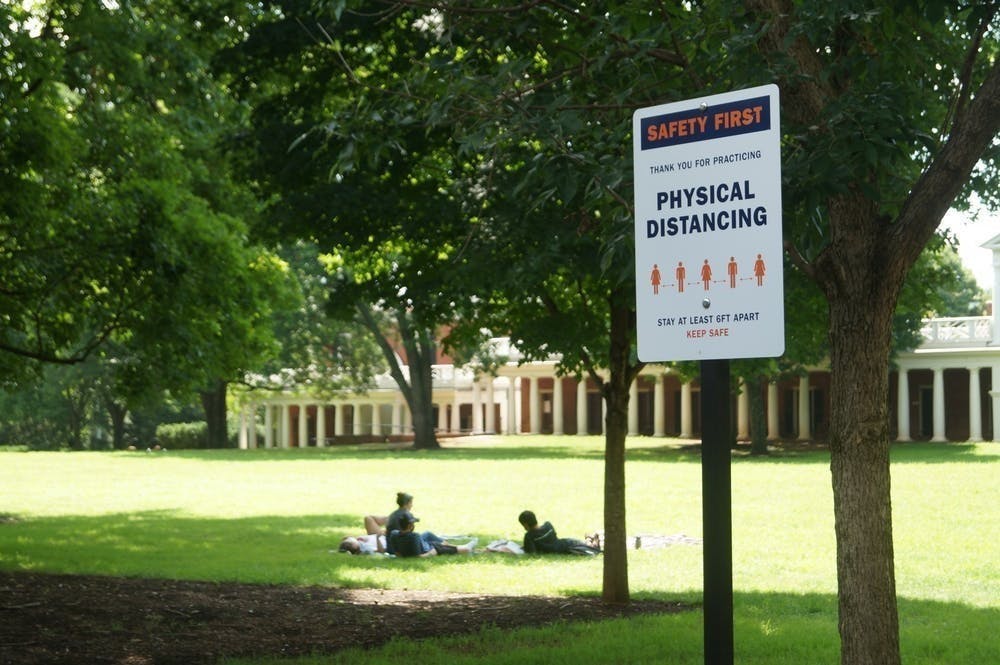Last semester, the University saw over 1,100 student COVID-19 cases and was forced to implement new restrictions. Several first-year dorms were put into temporary quarantine for testing and students began to think that U.Va. may send students home early before the end of the semester. By mid-October, the University had implemented saliva testing, allowing student testing capacity to be expanded greatly and soon after that thousands of students were being tested every week. The daily case count dropped dramatically and the University along with the Charlottesville-Albemarle area saw relatively low case numbers compared to the rest of Virginia and especially the rest of the nation.
The University’s low case numbers seen at the end of the fall is very promising, and indicates that the University will already have the tools to replicate these low numbers when students return in the spring. However, the cold weather will create a new hurdle for the University in limiting the spread of COVID-19. When students return to Grounds in February, students will be less inclined to spend time indoors as a result of colder weather. It is reasonable to expect more indoor gatherings and dining to increase. The growing number of cases across the United States is partly due to an increase in indoor gatherings because of the colder weather. It is impossible for the University to enforce restrictions on all indoor gatherings. With cases growing around the nation and in Charlottesville, the University must be even more prepared to prevent the spread of the coronavirus.
The University has a significant problem on its hands — bars and restaurants. Bars on the Corner were often seen crowded on the weekends, with students standing shoulder-to-shoulder as though we are not living through a pandemic. Yet technically with University guidelines, these students are not doing anything wrong — they are actively consuming food and drink. Even if bars may be violating local and state law, students are not necessarily violating University regulation. If the University wants to be proactive about limiting the spread of COVID-19, it must do everything in its power to stop students from going to bars, using disciplinary measures when necessary.
The University also has a responsibility to the Charlottesville area to keep cases under control. U.Va. already took a gamble in bringing students back in fall. With the threat of another winter spike, they must do even more to stop the spread of the virus. The University is a multi-billion dollar institution with considerable influence. It is pertinent that U.Va. work further with the city of Charlottesville and local businesses to ensure that their decisions are not putting the community at risk. Moreover, it must find solutions to guarantee that large gatherings in venues such as bars are not happening.
Though there are many concerns about the upcoming spring semester, it is important to also recognize the progress the University has made in keeping the University community safe. The ability for any student or worker to get saliva tested without long waits at almost anytime with quick results has been a huge success. The implementation of this easy-access prevalence testing has given students the opportunity to get tested easily and has led to better results than what other universities have seen across the nation. The University should pride itself in creating such an effective and efficient testing system.
While the testing system is great, the United States has had several very deadly days and we have had many days with around 200,000 cases being confirmed in 24 hours. It is important to stay vigilant and recognize that we all must do more. The University must curb large indoor gatherings. We all must keep our circles small. Students must look out for one another, in Charlottesville and across the globe in these difficult times.
Hunter Hess is an Opinion Columnist for The Cavalier Daily. He can be reached at opinion@cavalierdaily.com.
The opinions expressed in this column are not necessarily those of The Cavalier Daily. Columns represent the views of the authors alone.







